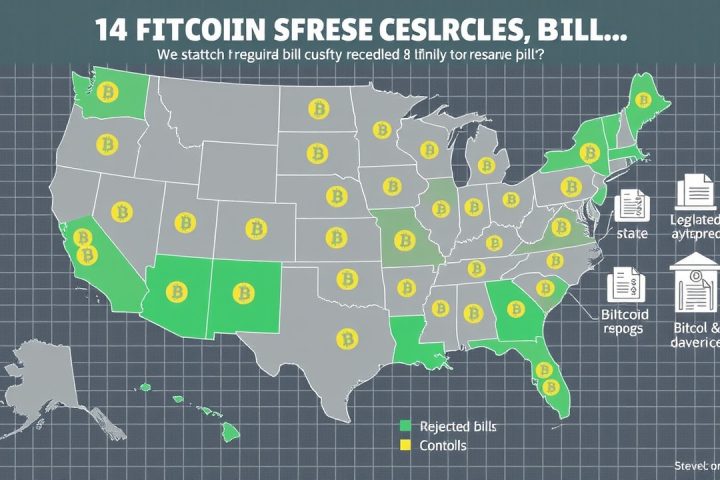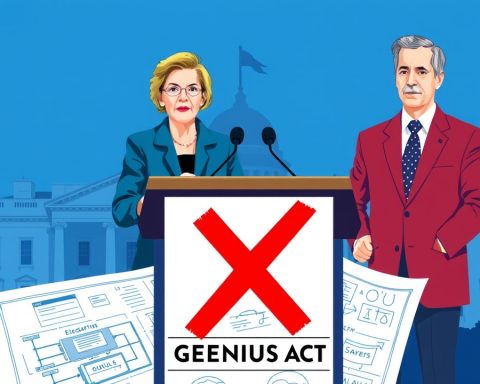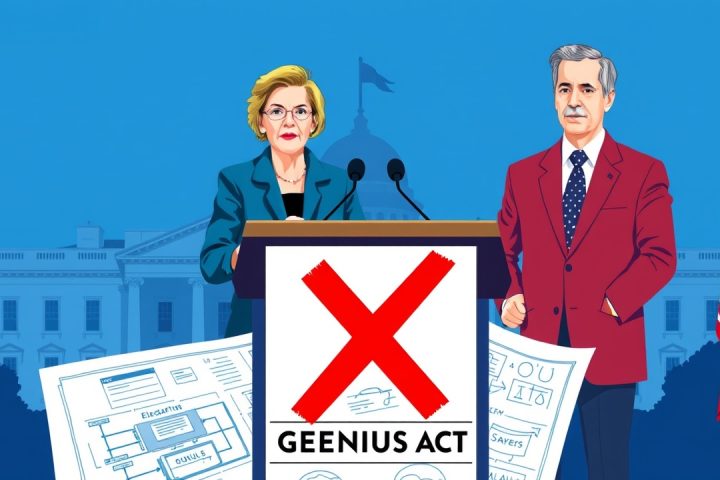Crucial Concerns at the SEC
With the Securities and Exchange Commission (SEC) pursuing an aggressive pro-crypto agenda during the Trump administration’s second term, Commissioner Caroline Crenshaw, the only remaining Democrat at the agency, has begun raising concerns about the commission’s approach to the cryptocurrency sector. At the SEC’s latest roundtable, focused on migrating conventional financial securities to blockchain platforms, Crenshaw questioned whether the agency was overreaching by inviting traditional finance entities to discuss blockchain adoption at its headquarters.
Criticism of Regulatory Approach
Recently, critics among former Democratic officials at the SEC have expressed skepticism regarding the Republican Party’s newfound support for cryptocurrencies, suggesting that potential loopholes for this emerging sector could undermine consumer protections in established financial markets.
The consensus is clear: the SEC must maintain its status as a neutral regulator in technology. So why would we specifically evaluate blockchain over other distributed ledger technologies for industry adoption?
Crenshaw went on to criticize the agency’s efforts to promote blockchain adoption, suggesting it resembles the government favoring certain technologies over others.
The Roundtable Discussion
The roundtable featured significant Wall Street players such as BlackRock, Nasdaq, Fidelity, and Franklin Templeton, who are keen on exploring security offerings through blockchain technology. SEC Chair Paul Atkins opened the discussion by highlighting the transformative potential of cryptocurrencies on traditional finance.
Blockchain technology could unlock a vast array of innovative opportunities for securities and spur new market activities that current regulations do not address.
Atkins commented on the optimistic outlook for blockchain’s influence on conventional markets.
Benefits vs. Risks of Tokenization
Advocates of tokenizing traditional securities argue that it could enhance market efficiency and accessibility. Blockchain could theoretically facilitate immediate transaction settlements for stock trades, which typically incur a one-day settlement period, making markets more user-friendly. However, Crenshaw argued that the existing delays in Wall Street settlements present several advantages, such as the ability to pause transactions in instances of fraud or national security threats, as well as significantly reducing the number of transactions that need final settlements by up to 98%. She asserted:
This system allows us to cope with an immense trading volume without major disruptions.
Crenshaw further expressed doubts about the readiness of blockchain networks to process every stock transaction in real time without risking network failures.
Contrasting Views within the SEC
In contrast, SEC Commissioner Hester Peirce, who leads the agency’s crypto task force, praised blockchain’s revolutionary potential for the securities market, akin to the internet’s impact. Nevertheless, Peirce conceded that Crenshaw raised valid concerns about the integration of real-time crypto transactions into the existing financial landscape, indicating that while the potential is intriguing, it warrants careful scrutiny.

















